Last week, we hosted something that might’ve seemed surprising coming from an organization called Moms First: a summit for dads.
When we started promoting “The Future of Fatherhood,” some people in our community asked—half-joking, half-exhausted—”Really? We’ve got to fix it for men, too?”
I get it.
For years, women have shouldered the work of caregiving, often with little support and even less recognition. We’ve organized. We’ve lobbied. We’ve sacrificed. And in that righteous fight, it’s been easy to cast men as the problem. Distant. Clueless. Unwilling. I’ve done it to my own husband!
But we’ve turned a real corner.
When our small but mighty team started planning this Summit with our incredible partners at Equimundo, I knew we were onto something. Because there are two conversations happening in our country right now that are inextricably linked… but most people aren’t treating them that way.
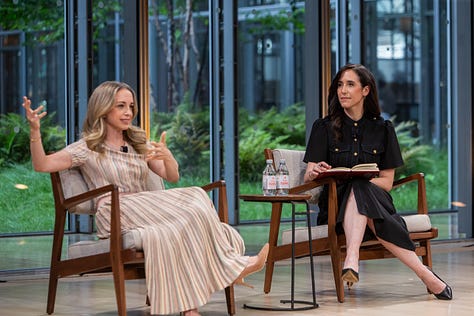
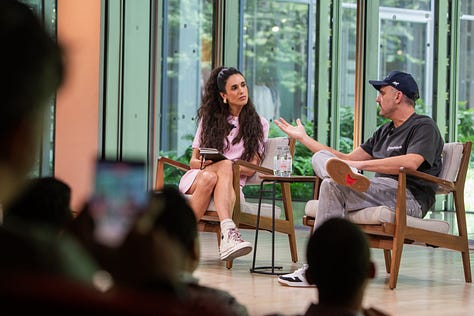
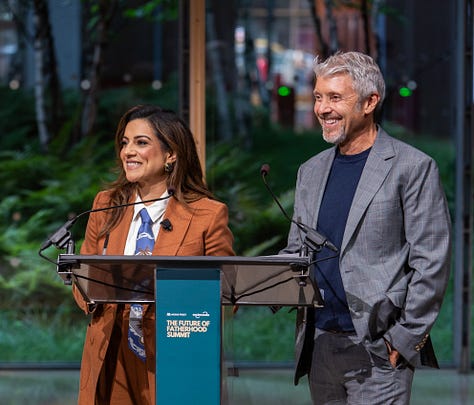
The first is about caregiving. About paid leave. About the policies we desperately need to support working families.
The second is about boys and men—their mental health, their changing roles, the shifting expectations that leave many of them confused, adrift, alone.
These conversations often live in separate worlds. But they shouldn’t—because they’re symptoms of the same broken system. We’ve built a society that doesn’t value care—not in our policies, not in our workplaces, not in our culture.
For generations, we’ve raised boys to measure their worth by what they provide—not how they nurture. We’ve taught men to sidestep care and praised them for doing so. Meanwhile, women have been expected to shoulder the burden of caregiving without complaint. We’ve called self-sacrifice a virtue for women—and self-reliance a strength for men.
And now we’re surprised when dads feel adrift—caught between outdated expectations and a new, real desire to co-parent. And when moms feel abandoned—still carrying the weight at home, even as they fight for progress at work.
Both are operating in a system that hasn’t evolved. And both are paying the price. We all feel abandoned. We all feel alone.
If we want real policy change, we have to stop treating these as separate conversations—and start seeing them as one.
When we were planning The Future of Fatherhood I told my team that I didn’t want to be running around backstage like I normally would.
I didn’t want to be stuck in the green room. Or doing tons of press interviews. Or scrolling through social media posts about the event. Checking to make sure all the trains were running on their tracks.
If I wasn’t on stage, then I wanted to be in the audience. I wanted to be watching and I wanted to be taking notes.
And so I did.
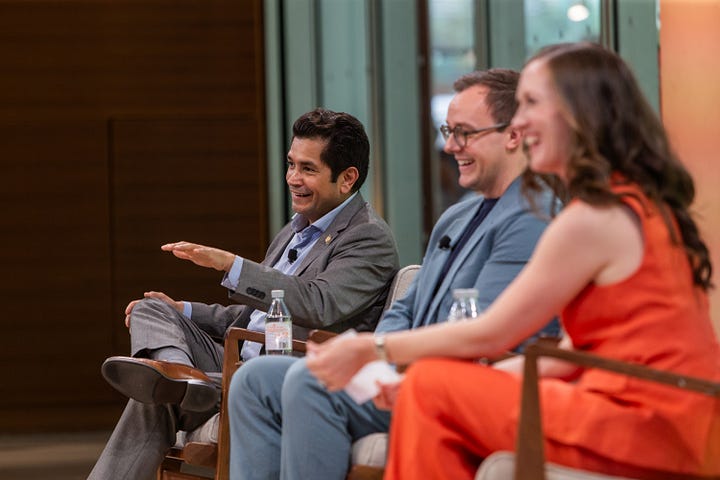
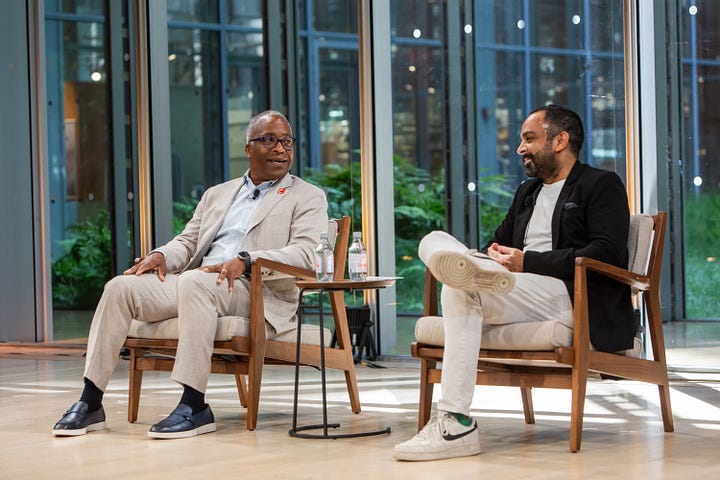
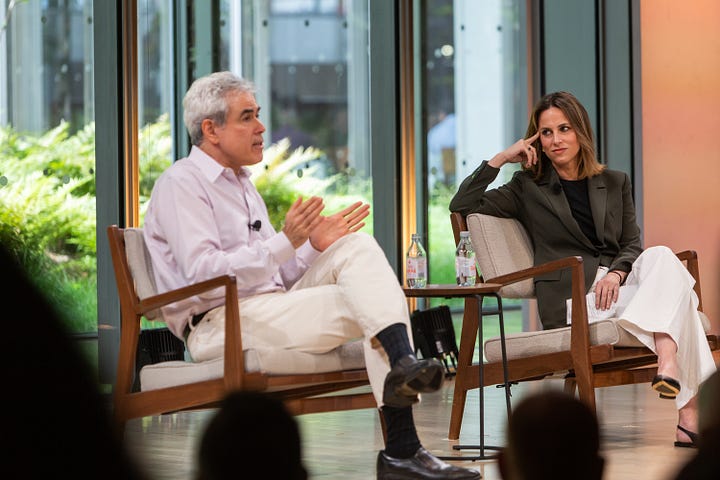
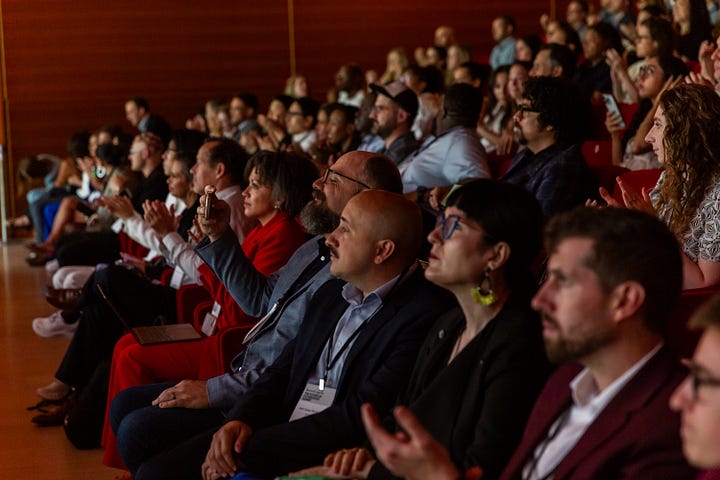
Looking around the room, I saw dads showing up. Not out of obligation, but out of curiosity and out of care. Lots of them were there in search of community, to build relationships with other dads.
These weren’t the dads from sitcom punchlines. These were fathers asking deep questions about emotional labor, masculinity, and how to raise children with empathy and strength. They were ready to be part of something bigger.
For me, it was also a moment of reflection. I’ve spent my career fighting for girls and women. And if I’m being honest, I used to think: “My boys are going to be fine. It’s the girls out there who need the help.”
But I’ve changed. I see now that boys are struggling, too—and not just because of gender norms but because of systems that fail all the caregivers raising our kids.
This summit marked a turning point for Moms First and for me. I’m learning to make space for men and to let go of some of the frustration I’ve carried for a long time.
That frustration came from being shut out—from watching moms carry the load while no one in power seemed to notice or care. But we’re not shut out anymore. The door is open, even if just a crack. And while it is, we have a responsibility: to engage everyone willing to do the work and to build a movement too big to ignore.
The New York Times’ Alisha Haridasani Gupta covered the Summit, calling it “a glimpse of a particular zeitgeist shift.” I hope with all my heart that’s true.
If you were one of the dads in the room: I’m glad you were there. But more than that, I hope you keep going. Keep showing up. Keep asking the hard questions. This work doesn’t end when the summit does.
With love,
Reshma
While you’re here…
Tomorrow on the pod: Lena Waithe and I talk about detaching from ego, redefining the American Dream, and the legacy we leave behind—not just in our work, but in our families. Listen here.
What I’m reading: Erased: What American Patriarchy Has Hidden from Us by Anna Malaika Tubbs. Pick up your copy here.
A necessary dose of joy: This video of Steve Carrell dancing to The Tings Tings at the Northwestern graduation.


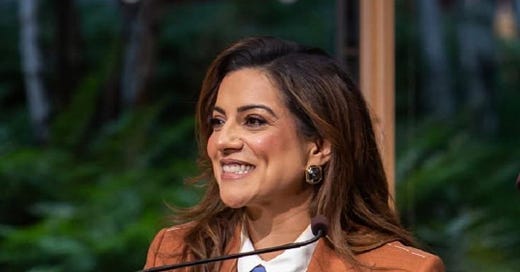



Thanks for inviting us and thank you for your leadership. As you said in your remarks, we are never going to win if half the team is on the sidelines.